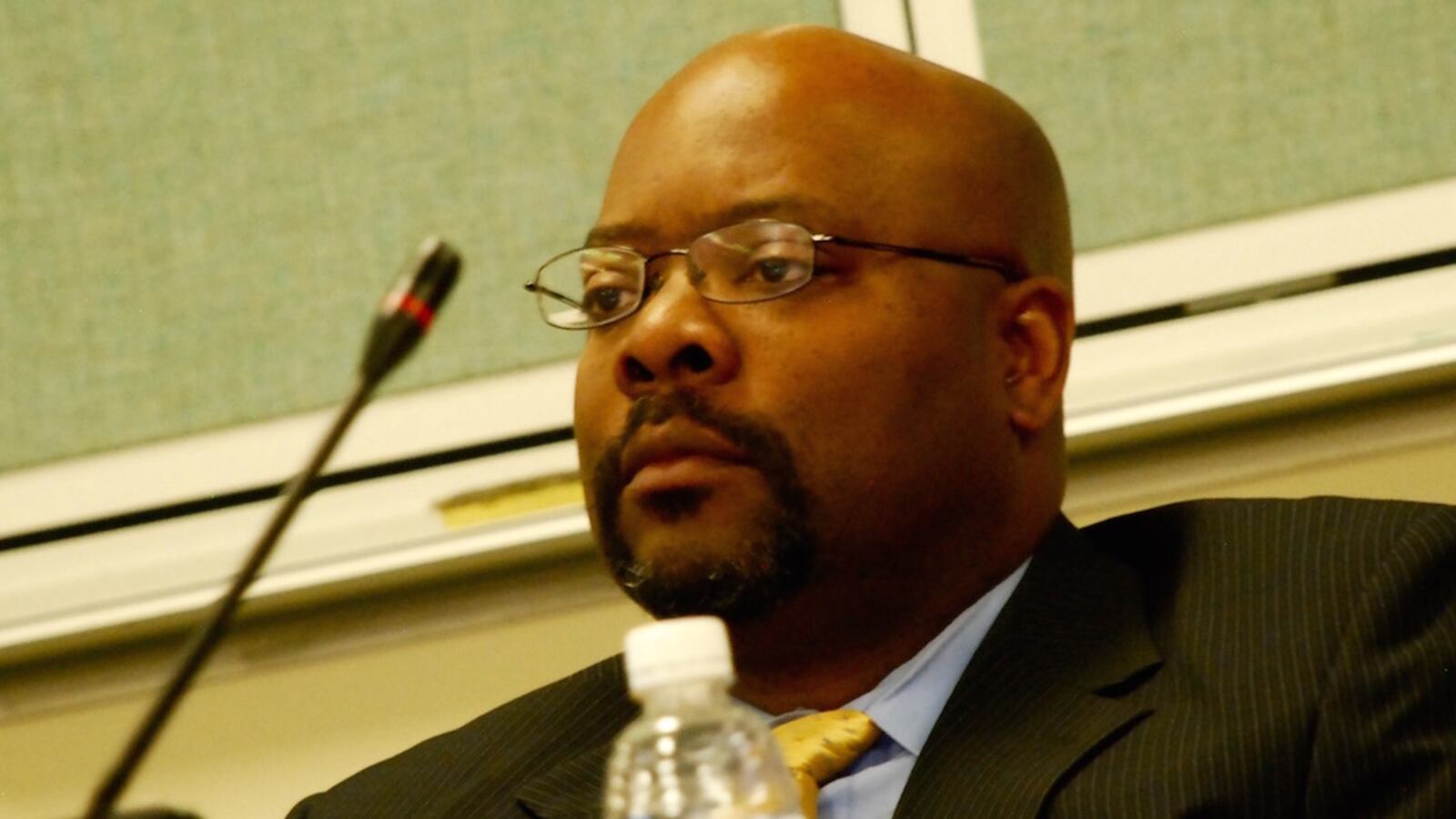AURORA — The city’s school board gave Superintendent Rico Munn the green light Tuesday to advance his most ambitious school reform efforts yet.
But, school board members made clear, if Munn fails to garner community support he’ll need to go back to the drawing board.
Munn’s proposal is that Aurora Public Schools allow a group of schools to be freed from a variety of district and state policies, to accelerate student learning at some of it’s lowest performing schools, including Aurora Central High School. Known as innovation schools, those buildings and programs would have greater flexibility over its calendar, curriculum, budget and staff.
Aurora Central is at the heart of Munn’s plan, known as ACTION Zones, because the school’s time on the state’s “accountability clock” has run out. Aurora Central has been labeled as failing for five years by the Colorado Department of Education, because most students score below grade level on state tests. The school’s ACT scores and graduation rate are far below the state average.
APS has 17 other schools on the accountability watch list. And the entire district is at risk of losing its state accreditation if student achievement doesn’t improve.
Four other schools were identified by name in a memorandum of understanding APS officials will present to the State Board of Education later this month. The nonbinding document spells out Munn’s plan and timeline. However, after board members criticized Munn for not engaging those school communities, they were removed from the memorandum.
Data center
Find your school’s state rating here.About a dozen teachers from Boston K-8, one of the schools named in the document, attended Tuesday’s board meeting. Two teachers thanked the district for not explicitly naming their school in the document. But Munn said Boston, which is also considered failing by the state, was still part of the plan.
Teachers and parents from Aurora Central also packed the board room.
Sharon Summers, an English teacher, told the school board that a group of teachers was working on ideas they hope can be incorporated into the final innovation plan.
While the most drastic changes won’t go into effect at Aurora Central and other schools until the 2016 school year, parents urged the board to move swiftly.
“I hate that I look at my daughter’s homework and know she can do it with her eyes closed,” said Erika Flores-Rowe, an Aurora Central parent. “I’d like to think it’s because she’s smart like her momma. But it’s because it’s super easy. She’s not being challenged. And I’m afraid of what will happen when she goes to college.”
In an earlier interview, Munn acknowledged parents’ concerns about the dire situation at Aurora Central. He said he’d be meeting with the school’s principal, Mark Roberts, in coming weeks to develop a plan for the fall.
With the school board’s OK, Munn and his team will begin establishing a variety of committees to craft plans for the schools, most in the Original Aurora neighborhood.
Under state law, for a school to receive innovation status from the state, a majority of the school’s parent accountability committee, teachers, and administrators have to sign off on the proposal.
“This will not work if we don’t have all the stakeholders at the table,” board president JulieMarie Shepherd said.
Other board members, who have been debating the issue publicly since February, said they were finally convinced innovation status would allow the district the greatest flexibility and community input.
“Even though we’ve been talking about this for seven or eight months, we’re at the beginning of the process — not the end,” Munn said.

